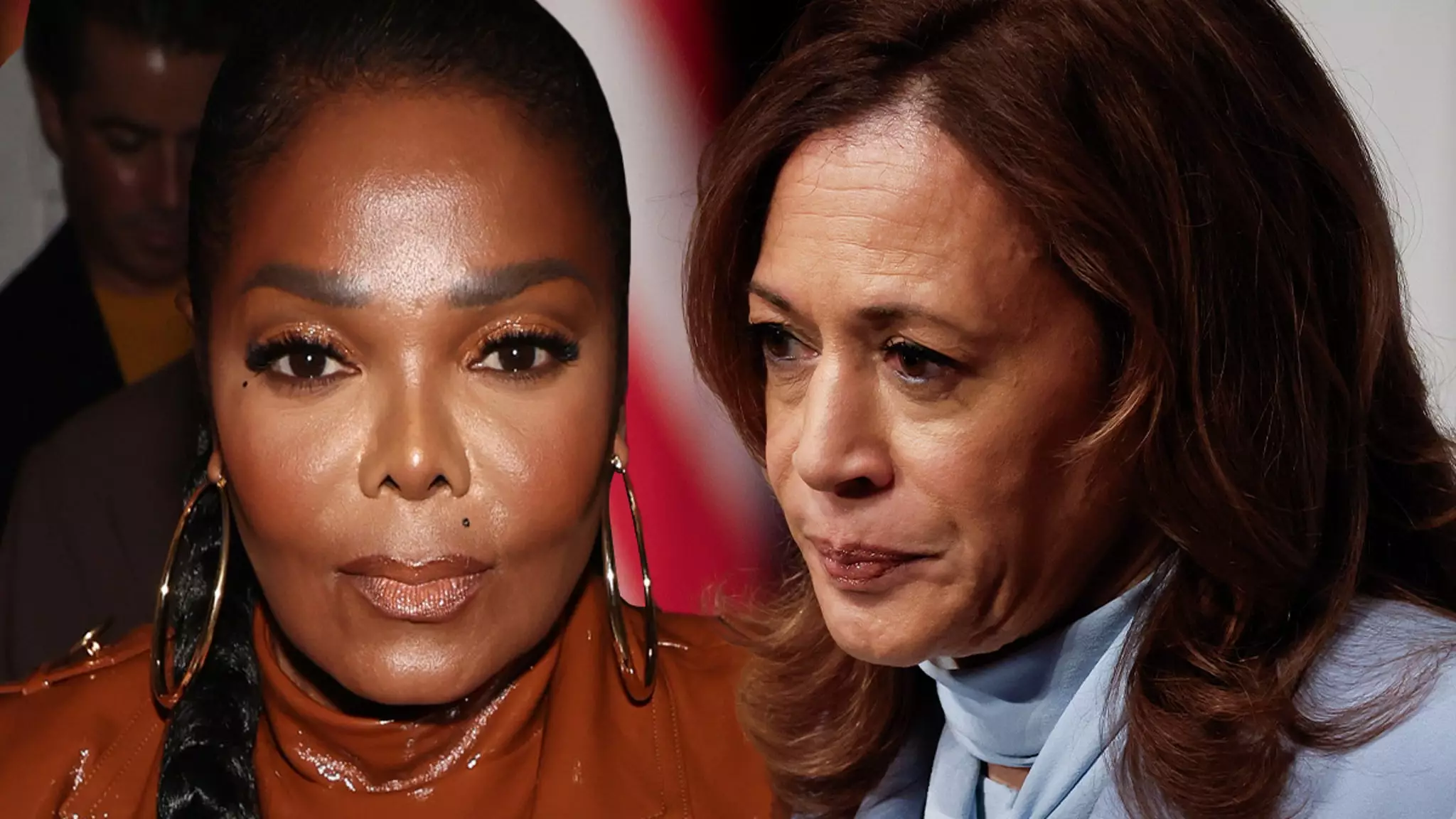In a recent interview with The Guardian, music icon Janet Jackson stirred controversy by voicing unsubstantiated claims regarding Vice President Kamala Harris’ racial background. In a nation already polarized by political and social issues, Jackson’s remarks reflect a troubling trend where celebrity endorsements or comments may reinforce divisive narratives. During her exchange with the interviewer, Jackson leaned into rumors questioning Harris’s Black heritage, suggesting instead that she is primarily of Indian descent. This unwarranted speculation echoes claims made by former President Donald Trump, who insinuated that Harris had altered her racial identity for political purposes.
Misunderstanding and Misinformation
The exchange raises critical questions about the sources of information that drive public discourse. Jackson’s assertion, “I heard Kamala’s not actually Black… she’s Indian,” reflects a concerning willingness to accept and perpetuate misinformation without seeking clarity or confirmation. Despite being a well-respected figure in the music industry, her engagement with unfounded theories demonstrates how easily even public figures can misinterpret identity. It is noteworthy that Harris identifies as Black and is proud of her Jamaican heritage, as well as her Indian roots, a complexity that too often gets overlooked in popular dialogues about race.
The rumors surrounding Harris’s identity are not new; they date back to past remarks made by Trump. His comments during a National Association of Black Journalists annual convention, where he referred to Harris as “turning Black” for political gain, swept through social media and traditional news platforms, igniting outrage among many. Such dismissals of multi-ethnic identities are inherently damaging and contribute to a broader culture of racial misunderstanding. Janet Jackson’s endorsement, albeit inadvertently, of this rhetoric illustrates how celebrity influence may perpetuate harmful stereotypes and societal divides.
Jackson’s exploration of this sensitive topic in a high-profile interview has the potential to disillusion many of her fans and followers. It exemplifies how influential artists bear a responsibility to engage thoughtfully in discussions surrounding race and identity. The unexamined acceptance of rumors can cause tangible harm, further polarizing a society already on edge. Janet Jackson’s reference to hearsay about Harris’s father being white only serves to muddle the discussion, revealing a lack of awareness of the real racial complexities at play. Such statements demand scrutiny, given their potential to shape public opinion.
As the 2024 elections loom on the horizon, it becomes increasingly crucial for all voices—especially those of high-profile individuals—to encourage informed dialogue regarding race and identity. Janet Jackson’s claims have opened up broader discussions but also remind us of the need for accountability. Pursuing verifiable facts instead of sensationalized stories can lead to a richer, more respectful conversation about what racial identity means in America today. In an era where information is at our fingertips, it is imperative that public figures navigate these discussions with both caution and intent, ensuring they uplift rather than diminish the richness of our diverse identities.

